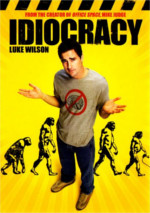An Innovator's Guide to Intuition
/In a world full of distractions, can innovators cultivate their instincts?
Wander the halls of the Yale School of Management and it’s easy to believe, in the words of the immortal Little Mermaid, “She’s got everything.” Already state-of-the-art classrooms rest in massive modules, ready to move as whiteboards, Wi-Fi, and whatever’s next become inevitable relics. The retired brigadier general/skydiving instructor/social psychology Ph.D. who’s invited a group of us — all contributors to a recent book, Peter Drucker’s Five Most Important Questions: Enduring Wisdom for Today’s Leaders — to speak in his leadership development class is every inch the sort of plain-spoken iconoclast I’d want shaping would-be titans of industry. And self-aware students pose questions like — What do we do when people want to hate us?
So when SOM leadership coach Laurie Kelley asks me over Pinot Grigio later what I think her high-flying Millennial charges most need to succeed, I linger a moment in my glass.
There are the usual answers. Some would say “tech savvy,” invariably — though such a flat, 20th-century phrase can hardly capture the bone-deep technological awareness the best seem born with now. Some would bring up “people skills” — likely in the same winsome tone you’d use to say “ball-bearings.” Answers could range from the cynical (“a high tolerance for pain”) to the snarky (“a low resting heart rate”). But here’s what really came to mind for me: intuition.
That was months ago now, and I’ve been pondering the question ever since. For future innovators, there’s no tip, tactic, or resolution to guarantee success. What might actually make a difference is far more fundamental than that; it’s what we know without knowing — our feel for everything from the perfect words to set a friend at ease to the tiny flourish that’ll make a pitch special. And with it comes the confidence, insight, and will — the awesomely human advantage — to shape our circumstances and, in the truest sense of the word, lead our lives.
We call this gut and hope we’ve got enough to guide us. But make no mistake: Intuition may be human, but it’s far more than visceral. It’s knowledge distilled from years of experience, time spent learning the particular quirks and consequences of this or that course of action till they’re so ingrained we don’t have to consider them at all. This is instinct born not simply of being, but of doing.
So we have to do. And do a lot. And do alone. And not only do, but try in earnest to process the doing, too.
None of this comes naturally anymore. In lives often lived by the grace of smartphones and social networks, choosing a restaurant sans Yelp can be a struggle, never mind knowing oneself existentially. And the challenge is increasingly acute for today’s young people: Modernity, with its noise and tech and stubborn aversion to nuance, threatens not only to erode our intuition but to stymie its existence altogether as we lose the need (and I daresay the ability) to rely on our own senses.
Which, ultimately, stymies our ability to innovate — to see past the better/faster/stronger path or product through to something unique and transformational.
That won’t do. But what’s to be done about it? In short, how do we build intuition with intent?
1. Read. We’re reading all the time nowadays — tweets and posts and listicles galore. But how much of it pushes us? It’s too easy to curate whatever’s stressful, discordant, or unnecessarily complex right out of our infostreams and pretend we’re simplifying our lives when it’s more like we’re constructing a real-life Idiocracy. Resist this. Intuition is the reward of deliberate discomfort, and reading — immersing our minds in the world as it is, as it might be, and as far-flung others see it — lets us experience that disquiet in safe, personal, and edifying ways. So read. Try to grasp every idea, even when your screen habits tempt you to scan. And don’t limit yourself to news sites or the new non-fiction aisle. Pick up anything that tickles your brain: What’s so weird about the word “exotic”? Is that poem your grandfather loved as insane as you remember? Research shows that even literary fiction, despite the injuries of high school English, actually builds lasting empathy. Just think of the words as filters — an endless interior stream of context, perspectives, and possibilities that’ll keep you seeing (and creating) with fresh eyes.
2. Try it unlubricated. Someone I love has been sober more than a decade — and he’s beyond infuriating. Because, whatever the setting, this character consistently manages to be more daring, honest, and generally sparkling on fumes than we drinkers ever are; he’s willing to be his whole, unvarnished self, and what’s more, he knows who that is. While alcohol is at the happy heart of many a social ritual, workplace and otherwise, it’s sometimes so central that we don’t know how to do without it. And it can obscure what matters. As Sacha Z. Scoblic, the author of Unwasted: My Lush Sobriety, once told Time about giving up drinking, “It was terrifying to realize that I had to figure out what I actually liked to do. I had no ideas at first.” There’s plenty to appreciate about an afterwork gin and tonic: It can be fun, supremely cathartic, and at times, the very best bonding potion there is. What it probably won’t do, though, is make you more perceptive. Or more fascinating. Or most likely to be curious and fascinated yourself.
3. Don’t pick up the phone. The stats might be alarming if they weren’t so anecdotally obvious. The average American consumer spends well over a day out of each month — 34 hours, 21 minutes — on his or her smartphone, according to Nielsen. And one UK survey by marketing agency Tecmark found that, in a single day, average users picked up their phones 221 times. Do we even touch each other that much? (Doubtful, though there’s enough research to suggest we should.) Talk about a coping mechanism. And what we’re coping with, I’d wager, is quiet. Stillness. That scary silence in which there’s nothing to do but ponder. We’re trading contemplative space for the constant high of what neuroscientist Daniel J. Levitin calls “a neural addiction” in his book The Organized Mind: Thinking Straight in the Age of Information Overload. We are, plainly put, drowning out our intuition. Because, while I heart Instagramming and cruising Twitter as much as the next Millennial, I know the real and truly innovative magic happens when we lose the phones and face what’s in our heads — when we let our minds wander over the day and all its failings till some flash of insight presents itself. It’s work, for sure, but what would you rather do — grow, or to quote Louis C.K., “text ‘hi’ to like 50 people”?
4. Write it down. Nothing clarifies the world so much as putting pen to metaphorical paper. And not just for this writer. Abraham Lincoln famously penned “hot letters,” unsigned correspondence that let him vent and do all the dressing-down he liked without risking friends and allies — because he never actually sent it. And “writing — and then rewriting — your personal story can lead to behavioral changes and improve happiness,” a notion Tara Parker-Pope’s explored in her New York Times “Well” column. Whether it’s a spirited Facebook exchange, a bit of proper journaling, or a few reflections tapped into Evernote after a tough week, translating our ricocheting thoughts into words of any sort gives us a chance to wrestle with their meaning. To examine our narratives. To winnow what we think till it’s both deep and nuanced enough to constitute intuition. That’s power, and pretty good practice besides for crafting the kinds of concepts and approaches that we really do need to get right to innovate.
5. Notice things. Intuition comes down to what we allow ourselves the space to see and feel. Like that instant on a long walk when a gnarled old tree or the crash of wind through the woods — something that would’ve been positively mundane seconds before — suddenly holds you in thrall. It’s exhilarating, this idea of experiencing a thing so known with brand-new senses. And all it requires is a little room to engage ourselves and, ultimately, evolve our impressions. That doesn’t mean our lives can’t be crowded; for most of us, “crowded” is the default setting. But we can’t concede wonder. Drag your coworkers paintballing — and watch the pain bond you. (Scholars say it will.) Let your kids witness Washington Crossing the Delaware or Alvin Ailey’s “Revelations” — and search for inspiration in it together. Run, do yoga, lie in bed a few extra minutes — and see what percolates up. Listen to yourself and whatever surrounds you. Let the learning happen however it does till building your intuition, daily, is just a question of waking up and getting better.
Bottom line: Intuition equals trust. In ourselves, in our instincts, and in our observations, from the most complex to the blindingly — or brilliantly — obvious. And if history is any indication — be it President Lincoln, Queen Bey(oncé), or the dictator who gave us the iPhone, Steve Jobs himself — that gut leads to guts. Which, naturally, breeds innovation.
—
Nadira Hira, Fahrenheit 212’s Millennial Culture Fellow, was a proud contributor to Peter Drucker’s Five Most Important Questions: Enduring Wisdom for Today’s Leaders. Find more from her on Twitter, Instagram, and www.nadirahira.com.









